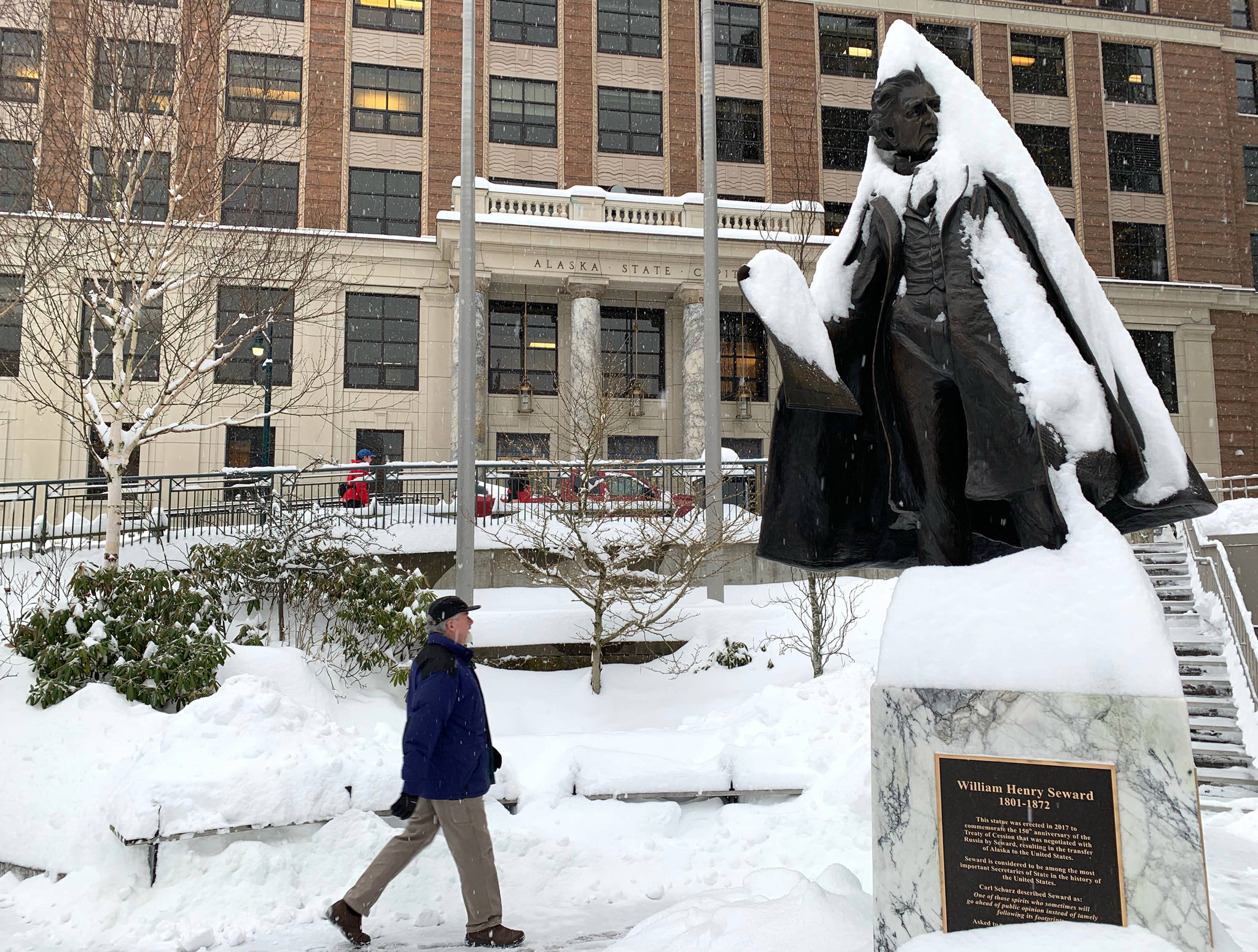The second round of pre-filed bills was released Friday morning ahead of the upcoming legislative session, some of which are trying to tackle Alaska’s high rates of sexual violence.
House Bill 33, proposed by Rep. Matt Claman, an Anchorage Democrat, would do two things. It would require sex offenders and child kidnappers with convictions out of state to register as such in Alaska databases, which right now is not required by law.
Second, it would bar marriage from being used as a criminal defense in sexual assault cases in which a spouse is incapacitated and in the offender’s care. Claman said in most Alaska court cases, marriage cannot be used as a defense in a sexual assault case, except for this loophole. Claman and Rep. John Lincoln, a Kotzebue Democrat who helped Claman with the bill, are trying to fix that.
This is the fourth pre-filed bill that seeks to tighten up criminal code that concerns sexual violence. Sen. Peter Micciche, R-Soldotna; Sen.-elect Scott Kawasaki, D-Fairbanks; and Rep. Geran Tarr, D-Anchorage, filed bills Monday addressing sexual violence. More than a third of Alaska women have experienced sexual assault. That statistic is the highest in the nation.
[Sexual violence, capital move and the PFD: Here’s four of the most important pre-filed bills]
Claman said these bills that attempt to amend the criminal code in regards to sexual violence are likely a result of the Justin Schneider case.
“Here in Anchorage in particular there was a real outcry about sexual assault after the Justin Schneider case,” Claman said. “Because of the plea deal he got, there was a big community response. They were appropriately dissatisfied with his sentencing.”
Schneider is an Anchorage man who kidnapped a woman in broad daylight, strangled her until she passed out and then masturbated on her and drove away. He was later caught by police, using the physical evidence, but he pleaded guilty to a reduced single felony charge and served no additional jail time. His crime fell outside the criminal code’s definition of sexual assault and he walked out of court with no jail time. Superior Court Judge Michael Cory was ousted in the November election following as a result.
“I think the Schneider case caused a lot of legislators to say, ‘Hey let’s look to see if there are loopholes, and let’s take steps to close those loopholes,’” Claman said.
Equal pay, $15 minimum wage
Tarr introduced a bill called the “Equal Pay and Living Wage Act” that would raise the Alaska minimum wage to $15 per hour, effective Jan. 1, 2020. Tarr’s House Bill 28 would also require an annual report on equal pay for comparable work to be published each January.
A 2017 report from the U.S. Bureau of Labor Statistics revealed Alaska had one of the largest gender pay gaps in the nation. Full-time female employees were making a median weekly salary that was about 81 percent of males.
[‘Like the first day of school’: Juneau’s freshman lawmakers gear up for session]
Tarr helped introduce similar legislation in 2016 but it did not pass.
Among the findings in the report that Tarr is pushing for is, “information about compensation practices in the state and to what extent employees in one or more election districts of the state are paid.” It would also include information on, “equal pay for work of comparable character, regardless of race, religion, color, national origin, age, physical or mental disability, sex, marital status, change in marital status, pregnancy, or parenthood.”
Tarr was unavailable for comment Friday.
Permanent Fund
Of the 13 pieces of legislation pre-filed on Friday, three deal with the Alaska Permanent Fund.
Sen. Bill Wielechowski’s Senate Bill 17 is a follow-up bill to his supplemental dividend bill that was released Monday. SB17 would require the Alaska Permanent Fund Corporation to make a one time $2.393 billion appropriation to the earnings reserve for the purpose of funding that supplemental dividend. SB 17 hinges on the passage of SB 13, which would cut a dividend check for eligible Alaskans amounting to $3,740.
Rep. Chris Tuck, D-Anchorage, has submitted a House Joint Resolution that would require 50 percent of the Permanent Fund earnings available for distribution to be used for dividend payments. The remaining 50 percent would be deposited in the general fund. This resolution proposes constitutional amendments to accomplish this.
Rep. Jonathan Kreiss-Tomkins, D-Sitka, has a bill that would move $5.5 billion from the Alaska Permanent Fund earnings reserve account to the principal of the Alaska Permanent Fund.
Contact reporter Kevin Baird at 523-2258.

